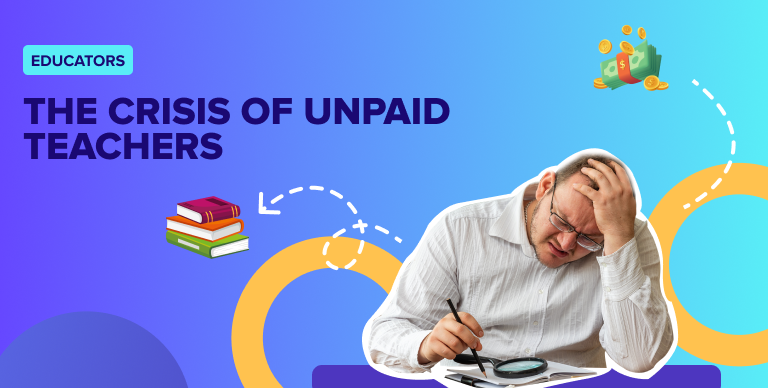Lorem ipsum dolor sit amet, consectetur adipiscing elit. Ut elit tellus, luctus nec ullamcorper mattis, pulvinar dapibus leo.
The Root of the Problem: Government Dysfunction
At the heart of the crisis lies government inefficiency and mismanagement. In many countries, teachers rely on government funding for their salaries, yet bureaucratic red tape, budget misallocation, and corruption often prevent timely payments. In some regions, especially in developing countries, teachers can go months without receiving a paycheck. This not only demoralizes educators but also forces many to abandon the profession entirely.
The problem is exacerbated by the lack of transparency in government spending. When funds are allocated to education, they often do not reach the intended recipients due to corruption and mismanagement. As a result, schools are left underfunded, and teachers are left unpaid. The long-term impact of this dysfunction is a systemic failure that compromises the quality of education for millions of students.
The Shortage of Qualified Educators
Unpaid salaries contribute significantly to the growing shortage of qualified teachers. Educators, already underpaid compared to other professions, cannot sustain themselves without a steady income. As a result, many are forced to seek alternative employment, leading to a brain drain in the education sector. The loss of experienced teachers leaves schools with a dearth of qualified professionals, forcing them to hire less experienced or unqualified individuals.
This shortage is particularly pronounced in rural and underserved areas, where attracting and retaining teachers is already a challenge. The absence of qualified educators in these regions exacerbates existing educational inequalities, leaving students in these areas at a distinct disadvantage.
The Ripple Effect on Student Learning
The impact of unpaid teachers on student learning cannot be overstated. When teachers are distracted by financial stress, their ability to focus on teaching diminishes. This leads to lower-quality instruction and reduced student engagement. Furthermore, the frequent turnover of educators due to unpaid salaries disrupts the continuity of education, leaving students without the stable learning environment they need to succeed.
Studies have shown that students in schools with a high turnover rate of teachers perform worse academically than those in more stable environments. The lack of qualified teachers also means that students may not receive instruction in critical subjects, further hindering their academic progress.
The Long-Term Consequences
The long-term consequences of this crisis are alarming. A poorly educated generation leads to a less skilled workforce, which in turn hampers economic growth and development. Countries facing this crisis risk falling behind on a global scale, as their educational systems fail to produce the skilled professionals needed to compete in a knowledge-based economy.
Moreover, the ongoing teacher shortage perpetuates a cycle of poverty and inequality. Without access to quality education, students from low-income backgrounds are less likely to break free from the cycle of poverty, further widening the gap between the rich and the poor.
A Call to Action
Addressing the crisis of unpaid teachers requires urgent action from governments worldwide. First and foremost, there must be a commitment to ensuring that education funding is used transparently and effectively. Governments need to prioritize the payment of teachers’ salaries and implement measures to prevent delays and misallocation of funds.
Additionally, there must be a concerted effort to attract and retain qualified teachers. This includes offering competitive salaries, providing professional development opportunities, and creating a supportive work environment. By investing in educators, governments can help ensure that all students have access to quality education, regardless of their background.
In conclusion, the crisis of unpaid teachers is a clear indication of government dysfunction that has far-reaching consequences. It is imperative that governments take immediate steps to address this issue, not only for the sake of educators but for the future of our students and society as a whole.





